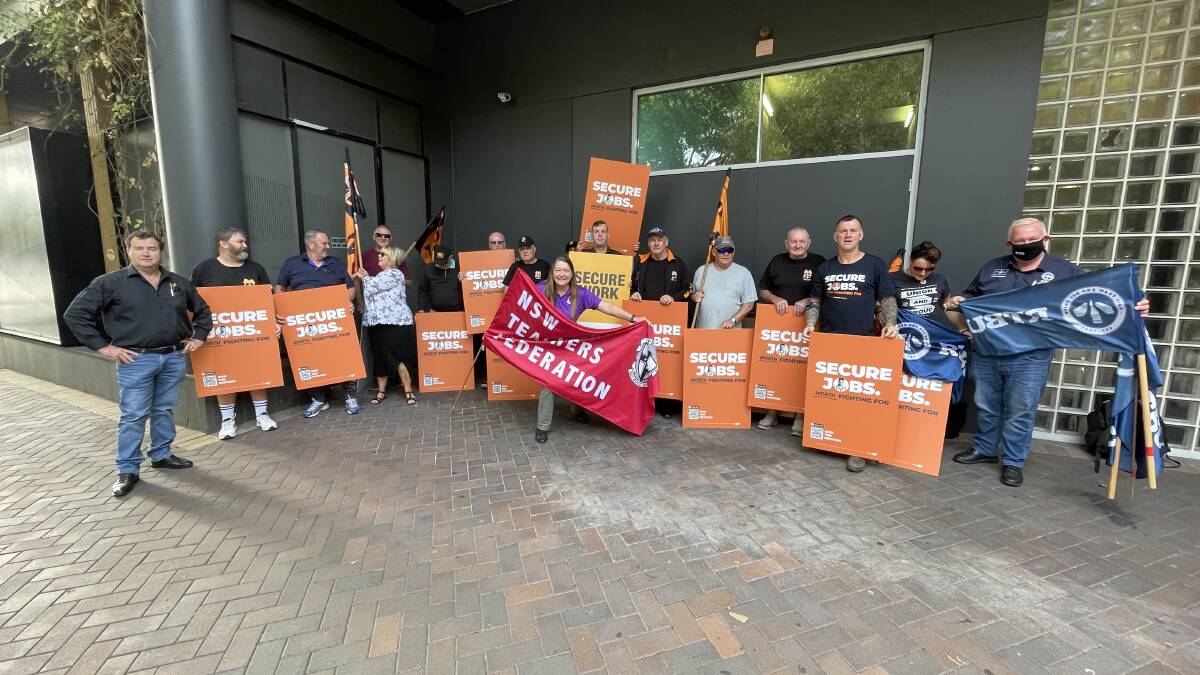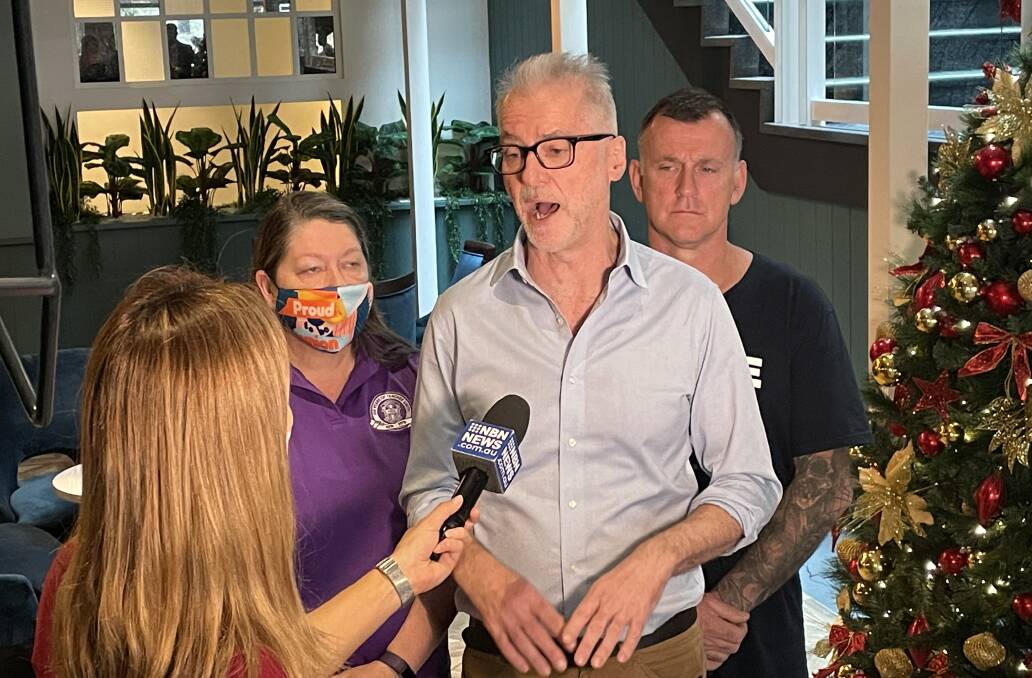
JOB "insecurity" had reached "a crisis point" in Australia, an ALP-chaired Senate committee has found, although its Coalition members say in a dissenting report that an unemployment rate of 4.2 per cent shows this to be a "Labor lie".
The committee's 300-page fourth report, published on Friday, also includes a separate set of recommendations from One Nation Senator Malcolm Roberts, who accuses Labor and the Coalition alike of ignoring the needs of small business in favour of the "one size fits all Industrial Relations Club".
Job security is likely to emerge as a campaign subject in the forthcoming federal election, and the chair of the Senate committee, Senator Tony Sheldon, is scheduled to address a "secure jobs" rally at Cessnock next Saturday.
Senator Sheldon, a former head of the Transport Workers Union, wrote in his forward to Friday's report that the inquiry's "inescapable conclusion" was that "job insecurity" was "damaging the physical and mental health of Australian workers and . . . holding back Australian wages and the Australian economy".
"In 2018, the proportion of employed Australians in permanent full-time jobs with paid leave entitlements fell below 50 per cent for the first time," Senator Sheldon said.
"The number and proportion of Australians forced to work multiple jobs is at an all time high.
"Within a decade of launching in Australia, Uber has become the second largest employer in the country-although its workers are solely engaged as independent contractors, without access to basic rights including the national minimum wage, superannuation, or workers' compensation.
"The scope of the job insecurity crisis in Australia is breathtaking. It affects men and women, older and younger workers, migrants and non-migrants, and white- and blue-collar workers alike."
Calling for further inquiries, the report says "no segment of the Australian workforce insulated from insecure work".
In their dissenting report, senators Matt Canavan (Nationals, Queensland) and Ben Small (Liberals, Tasmania) accuse the Labor and Greens majority of "cherry-pick(ing) data and accounts that supported their negative narrative, whilst being dismissive of any alternative view".
"Critically, and as Reserve Bank of Australia Governor Philip Lowe noted, 'we should not think of part-time jobs as being bad jobs, and full-time jobs as being good jobs', because over 75 per cent of part-time workers are happy with current employment status and do not desire to increase their hours of work," the Coalition senators said.

"Labor just doesn't get what Australians want-they are seeking to fit work around life, rather than trying to fit life around work."
The Opposition members objected some of the committee's 20 recommendations, especially Recommendation 10, to expand the Fair Work Act "to encompass all forms of work".
They described this as "a trojan horse for the unions to seize control of the gig economy, despite the committee having heard extensive evidence about the benefits of flexibility and freedom that such arrangements provide to tens of thousands of Australians".
The report looked at international attempts to regulate the gig economy, saying "governments cannot allow companies to use technological and legal gymnastics to disguise what are essentially employment relationships as something they are not".
It referred to December 2021 draft European Commission legislation that European unions hoped "could 'signal the end of the free for all' for Uber, Deliveroo and other platform companies".
It also referred to laws in California - 2019's Assembly Bill 5, that extended employee benefits to many gig workers - and Proposition 22, which it said was "financed by major gig platforms" and which over-rode AB5.
Senator Roberts - who highlighted his complaints about casual employment in coalmining - said the message from AB5 was "don't do this" in Australia.
"The result was reported as being catastrophic for business in California, with businesses and jobs drying up and the unemployment rate skyrocketing well above the US national rate," Senator Roberts said.
The report analyses Australian trends and finds "non-standard employment, insecure part-time work, indirect employment and outsourcing" have all increased and that labour hire is more prevalent than commonly used data suggests.
THE NEWCASTLE HEARINGS:
- Committee rolls into Hunter for hearings
- Unions criticise casual employment in aged-care disability and coal
- University and union at odds over casual numbers
- Partisan dividing lines in committee hearing
It cites economist Saul Eslake who said COVID-era unemployment statistics underplayed the real jobless rate.
For example, in April 2020, almost 767,000 were counted as employed even though they had "zero hours" through having "no work" or being stood down.
This figure had never been above 80,000 in the five years before the pandemic.
Dr Eslake said that while the official jobless rate at the time was 7.4 per cent, the "effective" rate was 17.8 per cent.
READ THE FULL REPORT HERE








